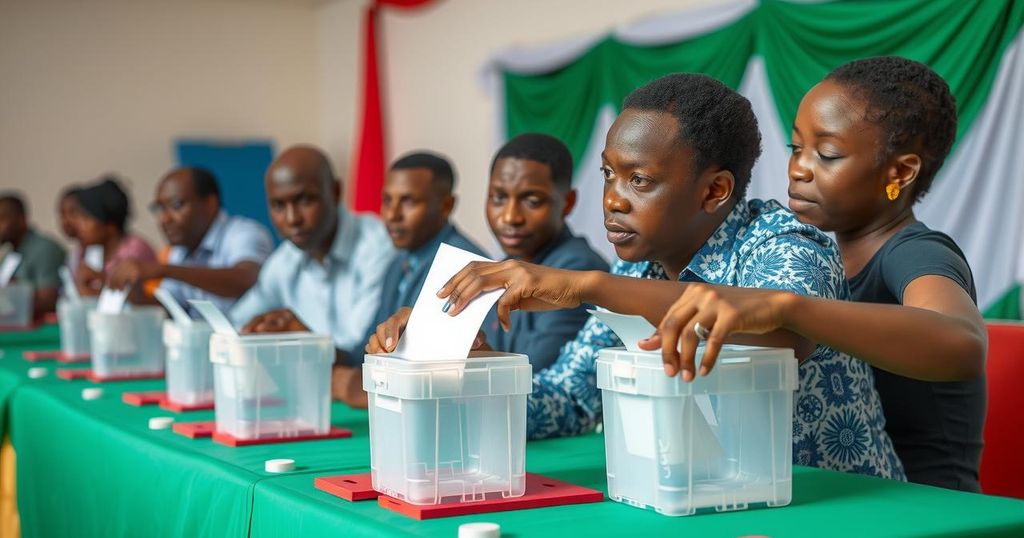Comoros held a parliamentary election on Sunday, with several opposition parties boycotting the process, alleging authoritarian tactics by President Azali Assoumani. Approximately 330,000 individuals are registered to vote, yet low turnout is expected due to public disillusionment with the electoral system. The legislative elections follow contentious previous elections characterized by allegations of fraud and political repression.
On Sunday, Comoros conducted a parliamentary election, which was met with a boycott from several opposition parties. Critics allege that President Azali Assoumani and his ruling party have adopted increasingly authoritarian methods, raising significant doubts regarding the election’s integrity. The election is set to fill 33 legislative seats, with results anticipated by the following week. Approximately 330,000 registered voters are expected to participate in a country with a total population of 850,000, although opposition groups predict low voter turnout due to a growing disillusionment with the democratic process.
In the last parliamentary election of 2020, Assoumani’s Convention for the Renewal of the Comoros and its allied parties secured 20 out of 24 contested seats. On the election day, the President exercised his voting right in Mitsoudjé, his hometown on Grande Comore, the largest island in the archipelago. Opposition parties characterized the 2020 election as a “masquerade,” alleging it was neither free nor fair, and highlighted similar concerns regarding the legitimacy of last year’s presidential election, which Assoumani won amid allegations of fraud and subsequent street protests.
Prominent among those boycotting the current election is the Juwa Party, led by former President Ahmed Abdallah Sambi, which had also abstained from the 2020 legislative elections. Comoros, consisting of three islands off Africa’s east coast near Madagascar, has experienced numerous military coups since gaining independence from France in 1975. Assoumani, a former military officer, first assumed power in 1999 by overthrowing the sitting president and later returned to office after stepping down in 2006. Following a series of elections, he has remained in power after implementing constitutional reforms in 2018 that allowed him to bypass term limitations.
The Africa Center for Strategic Studies, a research entity funded by the U.S. Congress, has indicated that President Assoumani’s tenure has seen increasing political suppression and a lack of competitive election processes. Despite the weather challenges posed by Tropical Cyclone Dikeledi, officials affirmed that the voting proceeded as planned on Sunday.
Comoros is an archipelago with a complicated political history fraught with instability since its independence from France in 1975. The nation has experienced numerous military coups, with Azali Assoumani being a significant figure in its tumultuous political landscape. He first gained power in 1999 through a coup d’état and has since engaged in several electoral processes, marked by escalating political repression and claims of non-competitive elections. The 2020 parliamentary election faced accusations of improper conduct, leading to opposition parties’ continued boycott of subsequent elections and a growing lack of faith among the populace regarding the electoral integrity.
The recent parliamentary elections in Comoros were marred by a significant boycott from opposition parties, casting a shadow over the legitimacy of the electoral process. With President Azali Assoumani’s administration facing accusations of authoritarianism and electoral malfeasance, voter apathy has become a pressing concern. Amidst the political turmoil, the upcoming results will be critical in examining the state of democracy within the archipelago.
Original Source: www.seattletimes.com






